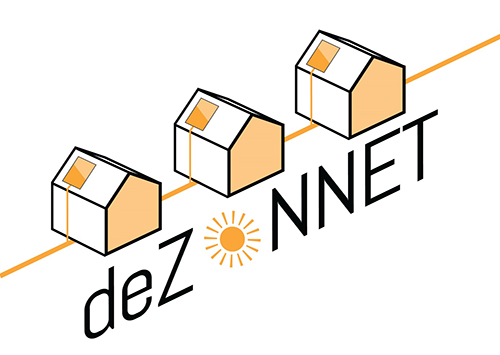New design for making city districts free of natural gas also delivers considerable CO2 savings
A new design for making homes free of natural gas through locally generated solar heat has received a subsidy of 350,000 euros from the Netherlands Enterprise Agency (RVO) in the Energy Top Sector. This design also saves a lot more CO₂ than other natural gas-free solutions. TU Delft is the coordinating university for the project and will develop and test the so-called 'DeZONNET’ concept together with Deltares and Greenvis, amongst others.
The concept consists of a low-temperature heat grid that is fed solar heat through the use of PVT panels (a combination of solar collectors and solar panels). What is unique to this project is that existing components will be combined to create a district energy concept in which maximum use is made of locally generated energy. The locally generated heat will be used partly directly and partly via seasonal storage, which means that the minimum external input of energy is required. This not only results in a solution that is free of natural gas but, moreover, in an immediate maximal saving of CO₂.
More efficiency
A heat pump raises the temperature of the locally generated heat per household so that it heats the home and produces hot tap water. Besides this, each individual system is connected to a very low temperature heat grid with geothermal heat storage, for the exchange and seasonal storage of heat. This combination makes it possible for geothermal heat storage systems to be implemented in new as well as in existing districts.
The design allows the heating requirements to be met without using much electricity, and without other sources of heat. The technical and financial feasibility are being researched as are the social aspects, including resident participation and innovative business models.
The first trial for making an existing district free of natural gas will take place in Haarlem. This project is part of the Haarlem Climate Accord signed on 8 March 2019.
The members of the consortium are: TU Delft Faculty of Architecture and the Built Environment, Deltares, Stichting DE Ramplaan and the SpaarGas project, Greenvis, De WarmteTransitieMakers, ENGIE, Triple solar and Fortes Energy Systems.
More information
Dr Sabine Jansen (Urban Energy, Architecture and the Built Environment TU Delft), S.C.Jansen@tudelft.nl, +31 15 2784096
Sharita Balgobind (TU Delft Press Officer), U.S.Balgobind@tudelft.nl, +31 15 2781588

